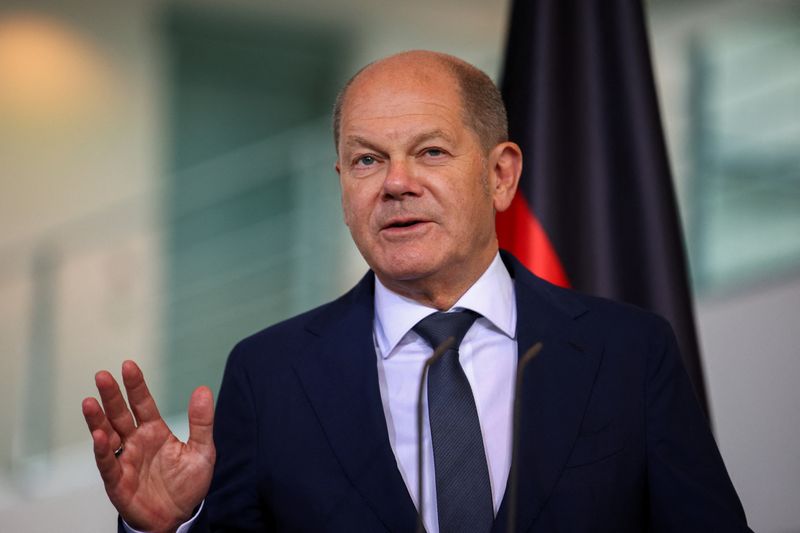BERLIN (Reuters) - German Chancellor Olaf Scholz said on Wednesday that he knew of further plans for large investments in chip production in Germany, a welcome trend as Europe looks to reduce its reliance on China when it comes to strategically important industries.
"I know of other plans by German companies and many others," Scholz told the Bundestag lower house of parliament after listing recent projects announced by chipmakers Intel (NASDAQ:INTC) and Infineon.
He vowed that Germany's efforts would help companies become less dependent on semiconductor supplies from other regions, days after China announced restrictions on two metals used in high-speed computer chips.
The abrupt announcement by the world's biggest producer of rare earth metals has companies scrambling to secure supplies and raised concerns that restrictions on rare earth exports could follow.
Germany is among the top importers of the affected metals: gallium and germanium. It has committed, along with other European Union members, to reduce dependence on China over Beijing's more aggressive diplomacy and closer ties to Moscow.
"Many people around the world have understood that we have to become resilient, and that there are certain industries that should necessarily be located here in Europe and in Germany," Scholz said.
He dismissed concerns that Germany is losing its appeal as an investment location, pointing to recent investments by major firms. Intel announced plans last month to spend more than 30 billion euros ($33 billion) on developing two chip-making plants in the central city of Magdeburg.

Berlin is also talking with Taiwan's TSMC and Sweden's electric vehicle battery maker Northvolt about setting up production in Germany. It already convinced Tesla (NASDAQ:TSLA) to build its first European gigafactory there.
"It's an impressive signal that so many German and international companies are choosing Germany for the expansion of their semiconductor production," Scholz told the Bundestag.